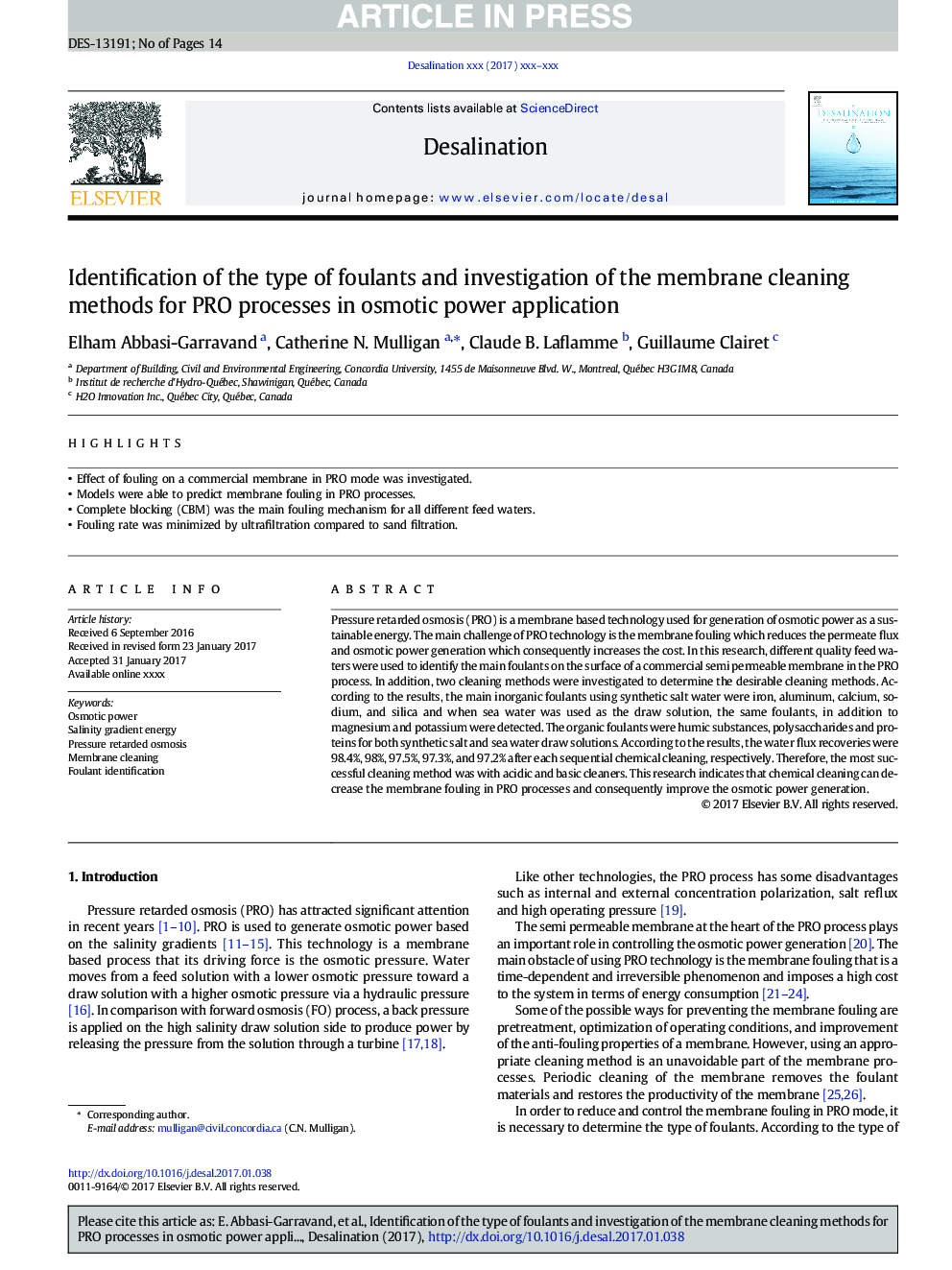| Article ID | Journal | Published Year | Pages | File Type |
|---|---|---|---|---|
| 4987575 | Desalination | 2017 | 14 Pages |
Abstract
Pressure retarded osmosis (PRO) is a membrane based technology used for generation of osmotic power as a sustainable energy. The main challenge of PRO technology is the membrane fouling which reduces the permeate flux and osmotic power generation which consequently increases the cost. In this research, different quality feed waters were used to identify the main foulants on the surface of a commercial semi permeable membrane in the PRO process. In addition, two cleaning methods were investigated to determine the desirable cleaning methods. According to the results, the main inorganic foulants using synthetic salt water were iron, aluminum, calcium, sodium, and silica and when sea water was used as the draw solution, the same foulants, in addition to magnesium and potassium were detected. The organic foulants were humic substances, polysaccharides and proteins for both synthetic salt and sea water draw solutions. According to the results, the water flux recoveries were 98.4%, 98%, 97.5%, 97.3%, and 97.2% after each sequential chemical cleaning, respectively. Therefore, the most successful cleaning method was with acidic and basic cleaners. This research indicates that chemical cleaning can decrease the membrane fouling in PRO processes and consequently improve the osmotic power generation.
Related Topics
Physical Sciences and Engineering
Chemical Engineering
Filtration and Separation
Authors
Elham Abbasi-Garravand, Catherine N. Mulligan, Claude B. Laflamme, Guillaume Clairet,
